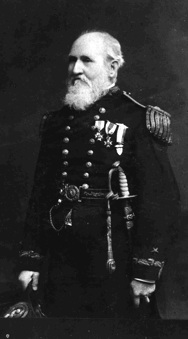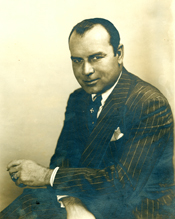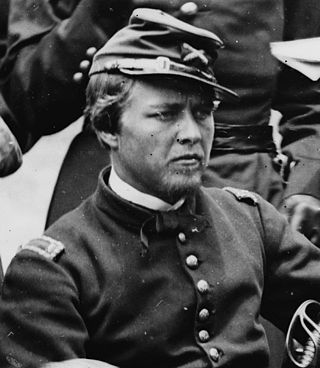
Conover is a city in Catawba County, North Carolina, United States. The population was 8,421 as of the 2020 census. It is part of the Hickory–Lenoir–Morganton Metropolitan Statistical Area and Charlotte Metropolitan Area.

John William Warner III was an American lawyer and politician who served as the United States Secretary of the Navy from 1972 to 1974 and as a five-term Republican U.S. Senator from Virginia from 1979 to 2009. He served as Chairman of the Senate Armed Services Committee from 1999 to 2001, and again from 2003 to 2007. Warner also served as the Chairman of the Senate Rules Committee from 1995 to 1999.

Ted Conover is an American author and journalist who has been called a "master of immersion" and "master of experience-based narrative nonfiction." A graduate of Amherst College and a former Marshall Scholar, he is also a professor and past director of the Arthur L. Carter Journalism Institute of New York University. He teaches graduate courses in the New York University Literary Reportage concentration, as well as undergraduate courses on the "journalism of empathy" and undercover reporting.

Thornton A. Jenkins was an officer in the United States Navy, who served during the Mexican–American War and the American Civil War. He later served as chief of the Bureau of Navigation and as president of the United States Naval Institute. Jenkins retired as a rear admiral.

Major General Charles Heywood was the ninth Commandant of the Marine Corps. He served as an officer for over 45 years and was the first Marine to reach the rank of major general. During Heywood's term as Commandant, the size of the Corps more than tripled, from 2,175 Marines to 7,810 total.

Simon Barclay Conover was an American physician and politician who served as a delegate to Florida's 1868 Constitutional Convention, state treasurer, state legislator, and U.S. Senator from Florida. He served in the Florida House of Representatives including as Speaker. He was a Republican.

Arthur Schuyler Carpender was an American admiral who commanded the Allied Naval Forces in the Southwest Pacific Area during World War II.
Gregory John Holbrock was an attorney, politician and one-term member of the United States House of Representatives from Ohio from 1941 to 1943.

William Sheldrick Conover II was a Republican member of the U.S. House of Representatives from Pennsylvania.
Lloyd Hillyard Conover was an American chemist and the inventor of tetracycline. For this invention, he was inducted into the National Inventors Hall of Fame. Conover was the first to make an antibiotic by chemically modifying a naturally produced drug. He had close to 300 patents to his name.

John Conover Nichols was an American lawyer, World War I veteran, and politician who served four terms as a U.S. Representative from Oklahoma from 1935 to 1943.
Newjack: Guarding Sing Sing is a nonfiction book by journalist and professor Ted Conover published in 2000 by Vintage Books. In the book, Conover recounts his experience of learning firsthand about the New York State prison system by becoming a correctional officer for nearly a year. Conover sought the job of correctional officer after the New York State Department of Correctional Services denied his request to shadow the department's employees in a journalist role.

Peter Conover Hains was a major general in the United States Army, military engineer, and veteran of the American Civil War, Spanish–American War, and the First World War. He is best known for his civil engineering efforts, such as the creation of the Tidal Basin in Washington, D.C., and for laying out the Panama Canal.

The New York City Police Riot of 1857, known at the time as the Great Police Riot, was a conflict which occurred in front of New York City Hall between the recently-dissolved New York Municipal Police and the newly-formed Metropolitan Police on June 16, 1857. Arising over New York City Mayor Fernando Wood's appointment of Charles Devlin over Daniel Conover for the position of city street commissioner, amid rumors that Devlin purchased the office for $50,000 from Wood, Municipal police battled Metropolitan officers attempting to arrest Mayor Wood.

Richard Stockton Field was an Attorney General of New Jersey, a United States senator from New Jersey and a United States district judge of the United States District Court for the District of New Jersey.

Peter Conover Hains III was an American Army cavalry officer and major general who competed in the 1928 Olympic games in the modern pentathlon. Hains graduated from West Point in 1924, where he ranked 162nd out of 405 in his class. Hains' family had a long legacy of military service, with his great grandfather, grandfather, and uncle all serving as high-ranking military officers. Hains' father Peter Hains was involved in an infamous murder scandal in New York City in 1909.
William Richard O'Byrne was an Irish biographer and politician, author of the A Naval Biographical Dictionary (1849).
John Marshall was an English officer in the Royal Navy who became a biographer of British naval officers.











